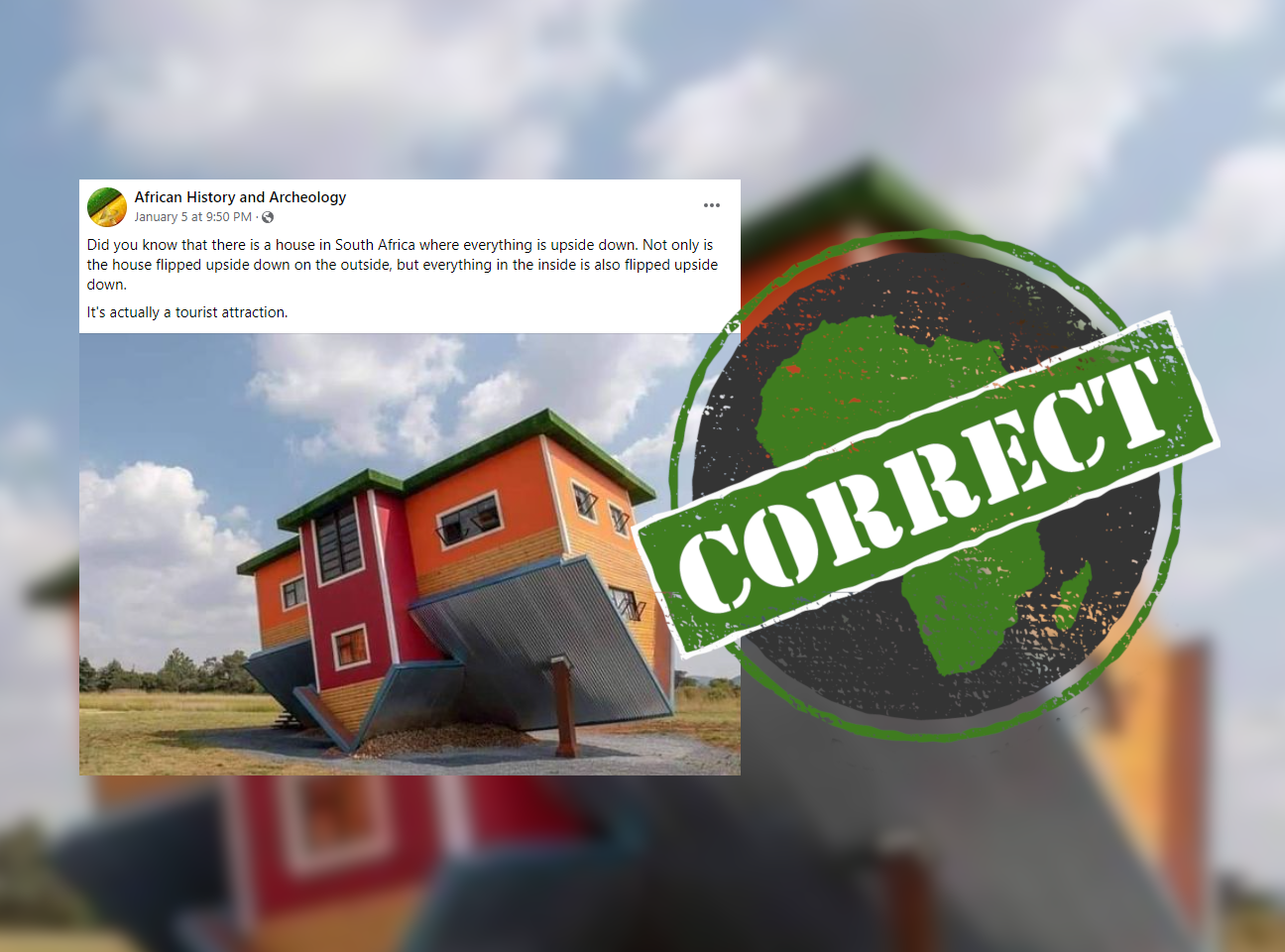Peculiar photos of an upside-down house, with its roof on the ground and inside contents to match, have been doing the rounds on Facebook in South Africa.
With just over 22,000 views in 24 hours, their caption reads: “Did you know that there is a house in South Africa where everything is upside down.
“Not only is the house flipped upside down on the outside, but everything in the inside is also flipped upside down.”
Facebook’s fact-checking tool has flagged the claim as possibly false. So what’s happening in the photos? And is the house in South Africa? We checked.

‘All the furniture is now above your head
A quick Google search for the house revealed a website that confirmed that the house is in South Africa.
According to the website, the house is in Broederstroom, a small town in North West province.
“The Upside Down House is just that, it's a house built upside down. All the furniture inside, etc which would normally be on the floor, is now above your head,” a description on the website reads.
It says visitors can spend two or so hours in and around the houses taking photos.
Photos and videos of the house have also been published by the Associated Press and eNCA.
Republish our content for free
For publishers: what to do if your post is rated false
A fact-checker has rated your Facebook or Instagram post as “false”, “altered”, “partly false” or “missing context”. This could have serious consequences. What do you do?
Click on our guide for the steps you should follow.
Publishers guideAfrica Check teams up with Facebook
Africa Check is a partner in Meta's third-party fact-checking programme to help stop the spread of false information on social media.
The content we rate as “false” will be downgraded on Facebook and Instagram. This means fewer people will see it.
You can also help identify false information on Facebook. This guide explains how.


Add new comment